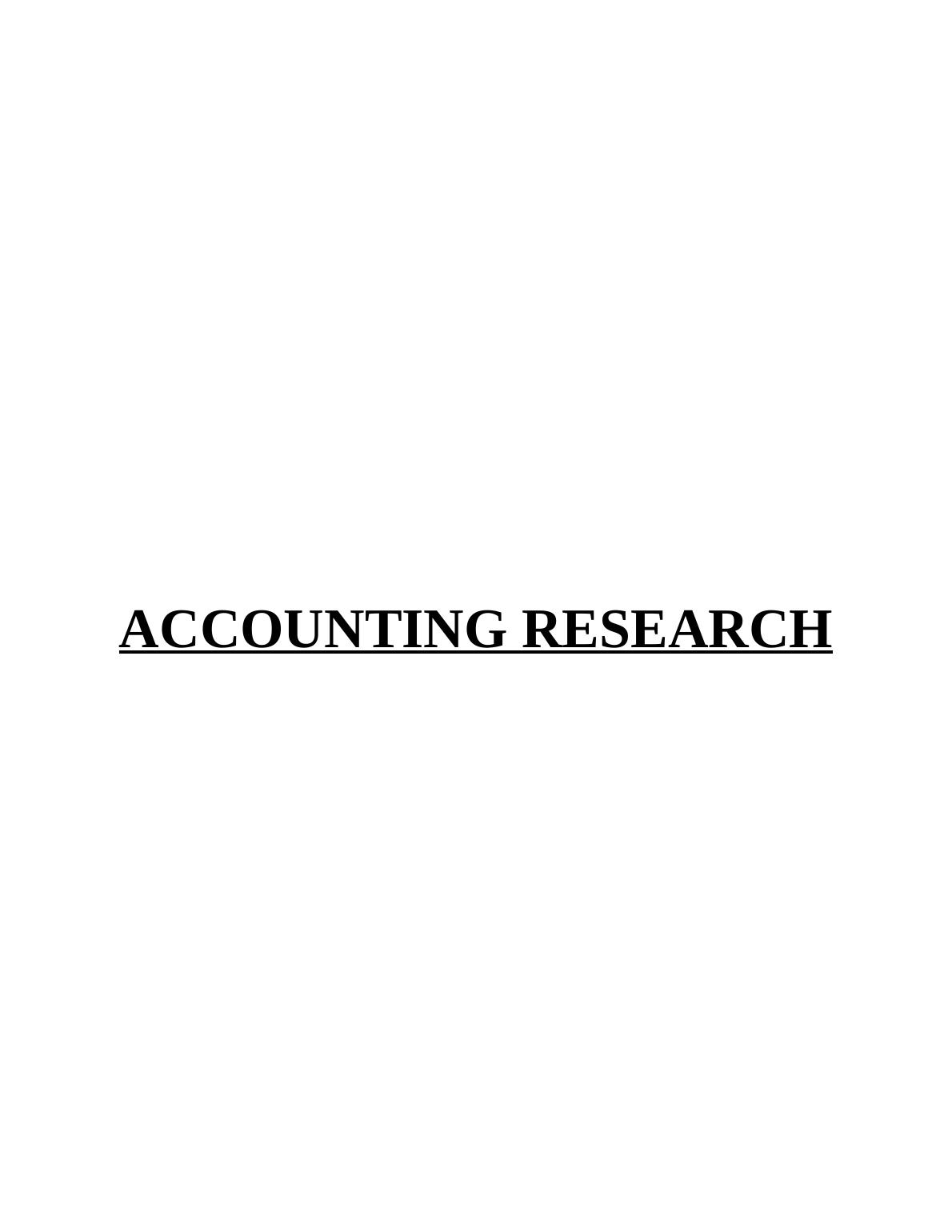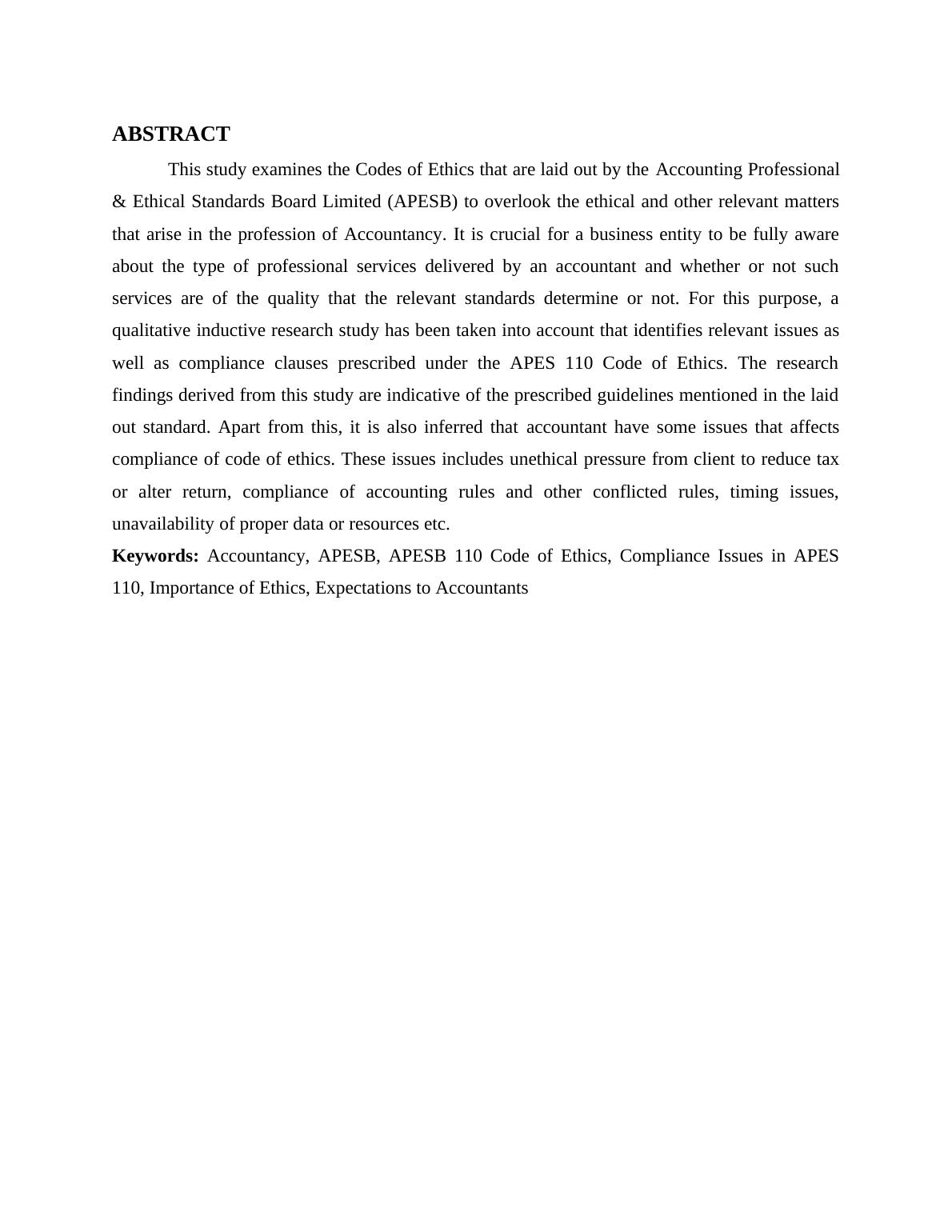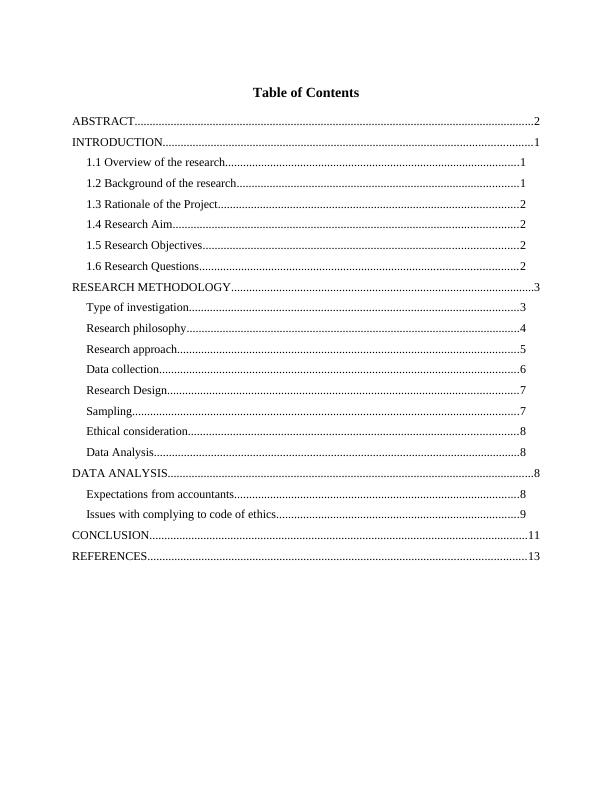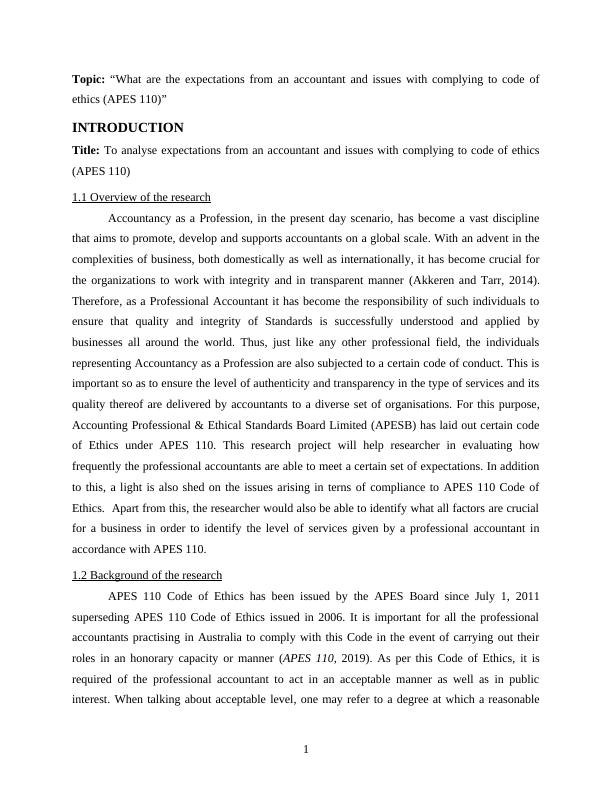Code of Ethics for Professional Accountants
16 Pages5809 Words18 Views
Added on 2021-02-21
Code of Ethics for Professional Accountants
Added on 2021-02-21
ShareRelated Documents
ACCOUNTING RESEARCH

ABSTRACTThis study examines the Codes of Ethics that are laid out by the Accounting Professional& Ethical Standards Board Limited (APESB) to overlook the ethical and other relevant mattersthat arise in the profession of Accountancy. It is crucial for a business entity to be fully awareabout the type of professional services delivered by an accountant and whether or not suchservices are of the quality that the relevant standards determine or not. For this purpose, aqualitative inductive research study has been taken into account that identifies relevant issues aswell as compliance clauses prescribed under the APES 110 Code of Ethics. The researchfindings derived from this study are indicative of the prescribed guidelines mentioned in the laidout standard. Apart from this, it is also inferred that accountant have some issues that affectscompliance of code of ethics. These issues includes unethical pressure from client to reduce taxor alter return, compliance of accounting rules and other conflicted rules, timing issues,unavailability of proper data or resources etc.Keywords: Accountancy, APESB, APESB 110 Code of Ethics, Compliance Issues in APES110, Importance of Ethics, Expectations to Accountants

Table of ContentsABSTRACT.....................................................................................................................................2INTRODUCTION...........................................................................................................................11.1 Overview of the research..................................................................................................11.2 Background of the research..............................................................................................11.3 Rationale of the Project....................................................................................................21.4 Research Aim...................................................................................................................21.5 Research Objectives.........................................................................................................21.6 Research Questions..........................................................................................................2RESEARCH METHODOLOGY.....................................................................................................3Type of investigation..............................................................................................................3Research philosophy...............................................................................................................4Research approach..................................................................................................................5Data collection........................................................................................................................6Research Design.....................................................................................................................7Sampling.................................................................................................................................7Ethical consideration..............................................................................................................8Data Analysis..........................................................................................................................8DATA ANALYSIS..........................................................................................................................8Expectations from accountants...............................................................................................8Issues with complying to code of ethics.................................................................................9CONCLUSION..............................................................................................................................11REFERENCES..............................................................................................................................13

Topic:“What are the expectations from an accountant and issues with complying to code ofethics (APES 110)”INTRODUCTIONTitle: To analyse expectations from an accountant and issues with complying to code of ethics(APES 110)1.1 Overview of the researchAccountancy as a Profession, in the present day scenario, has become a vast disciplinethat aims to promote, develop and supports accountants on a global scale. With an advent in thecomplexities of business, both domestically as well as internationally, it has become crucial forthe organizations to work with integrity and in transparent manner (Akkeren and Tarr, 2014).Therefore, as a Professional Accountant it has become the responsibility of such individuals toensure that quality and integrity of Standards is successfully understood and applied bybusinesses all around the world. Thus, just like any other professional field, the individualsrepresenting Accountancy as a Profession are also subjected to a certain code of conduct. This isimportant so as to ensure the level of authenticity and transparency in the type of services and itsquality thereof are delivered by accountants to a diverse set of organisations. For this purpose,Accounting Professional & Ethical Standards Board Limited (APESB) has laid out certain codeof Ethics under APES 110. This research project will help researcher in evaluating howfrequently the professional accountants are able to meet a certain set of expectations. In additionto this, a light is also shed on the issues arising in terns of compliance to APES 110 Code ofEthics. Apart from this, the researcher would also be able to identify what all factors are crucialfor a business in order to identify the level of services given by a professional accountant inaccordance with APES 110.1.2 Background of the researchAPES 110 Code of Ethics has been issued by the APES Board since July 1, 2011superseding APES 110 Code of Ethics issued in 2006. It is important for all the professionalaccountants practising in Australia to comply with this Code in the event of carrying out theirroles in an honorary capacity or manner (APES 110, 2019). As per this Code of Ethics, it isrequired of the professional accountant to act in an acceptable manner as well as in publicinterest. When talking about acceptable level, one may refer to a degree at which a reasonable1

End of preview
Want to access all the pages? Upload your documents or become a member.
Related Documents
APES 110 Code of Ethics for Professional Accountants Doclg...
|7
|1945
|153
APES 110 Code of Ethics for Professional Assignmentlg...
|6
|2134
|157
Accounting Professional & Ethical Standards Doclg...
|8
|2007
|367
APES110 Code of Professional Ethics in Accountinglg...
|8
|1801
|108
APES 110 Code of Ethics for Professional Accountantslg...
|6
|1287
|92
The Simplest Expression for the Ethical Behaviorlg...
|7
|1825
|150
